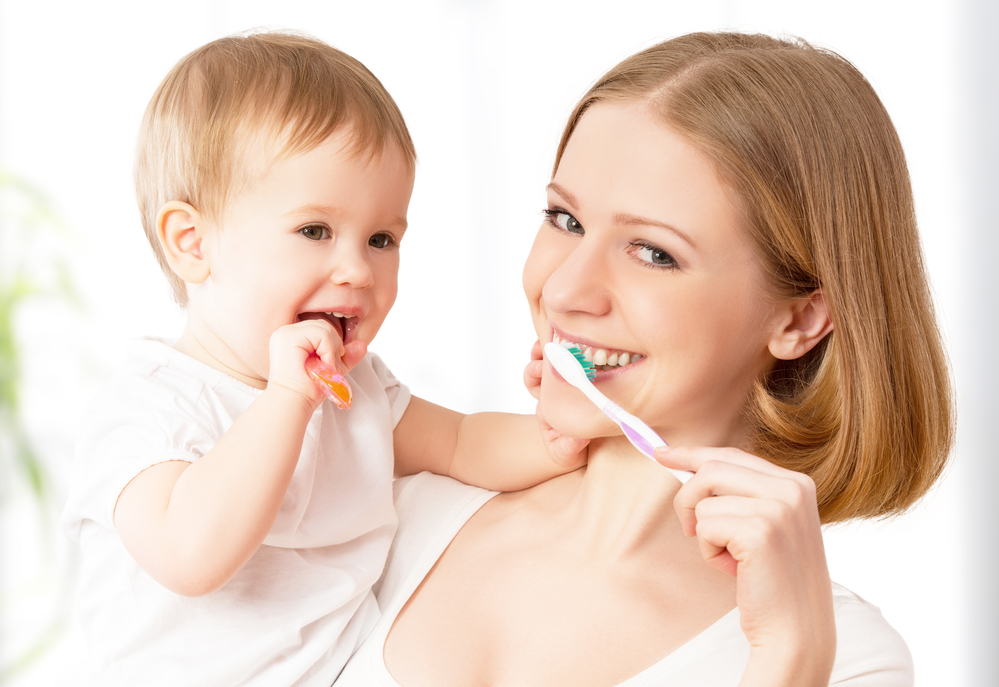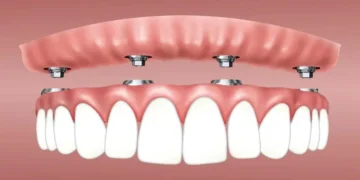Cleaning your child’s teeth is one of the most important tasks when it comes to good oral health. The problem is that children’s toothpaste can often even damage children’s teeth if it contains harsh abrasives. Today we are going to give you some advice on oral health for children and the choice of toothpaste for their teeth.
We parents don’t have to wait for the child’s teeth to come in to start looking after their oral health. Medical experts recommend starting to take care of children’s oral health even before teething by wiping your baby’s gums with a damp washcloth or soft eraser after each meal. If you are looking for best natural toothpaste then we can guide you in this article.
When the baby’s teeth start to grow, you can start brushing them with fluoride-free infant toothpaste. Since babies and children cannot control the swallowing reflex at this age, it is always best to use a fluoride-free formula. Fluoride consumed in large quantities can have toxic effects on the child’s body.
Fluorosis is a problem only for children under the age of 8 because once the permanent teeth finish developing and break through the gums, they can no longer develop fluorosis so at this time choose the best natural toothpaste.
It is important to make consultations with the dentist regarding the oral health of your children
Even if you use fluoride-free children’s toothpaste for your child, the fluoride that is in drinking water or the extra fluoride given by the dentist may be all the fluoride your child needs to have healthy teeth.
The best thing to do is start brushing your child’s teeth with practice toothpaste. Training toothpaste cleans kids’ teeth and gums, but without the dangerous ingredients found in regular toothpaste. This makes the toothpaste safe if your child swallows it and also teaches the little one to practice oral hygiene.
Many brands offer children’s toothpaste without fluoride and you can very well make the transition to children’s toothpaste with fluoride when the child is old enough. Children can start using children’s toothpaste with fluoride at age 3 if the dentist says they are ready. Even if fluoride-free children’s toothpaste is safe for the child, you must continue to give him help when brushing his teeth because the child may not yet have the motor skills necessary to wash his teeth well. teeth.
Why do babies need special toothpaste?
Babies and children should not use the same toothpaste as adults. Children don’t develop the ability to spit until they are 3 years old, which means they swallow all the chemicals in toothpaste.
You have to start brushing from the first teeth
Many brands of toothpaste for adults and unfortunately some brands for children including brands that sell ‘natural’ toothpaste actually contain ingredients that are harmful to oral health. That’s why you shouldn’t buy the first toothpaste you see. It is probably very difficult to know if what you are using to clean your child’s teeth is really safe.
So, is grain natural kid’s natural toothpaste safe for babies?
Yes, it can be. There are, of course, some ingredients to avoid when choosing best baby toothpaste, but there are plenty of natural and safe options that you can use. The best children’s toothpaste does not contain fluoride, SLS, or essential oils.
There are other ways to ensure that your baby or child will have healthy teeth grain natural kid’s natural toothpaste without taking the risk of fluorosis and brain poisoning. Here’s what you can do:
- Cod liver oil. You can start giving cod liver oil the moment you start introducing solid food into your child’s menu. Cod liver oil is one of the richest sources of vitamins A, D, and K2. This trio of nutrients works in synergy to prevent and even reverse small cavities that already exist.
- Children’s probiotics. Use a special probiotic formula for children. You can even mix the probiotics into the child’s food. Probiotics are very important for babies born by cesarean section who were not exposed to vaginal bacteria during birth.
- Vitamin D and Vitamin K2 in drops. Lately, give vitamin D and vitamin K2 drops to your child. These are supplements that can be added even to baby dairy formulas and can be started from birth.


 Home
Home









